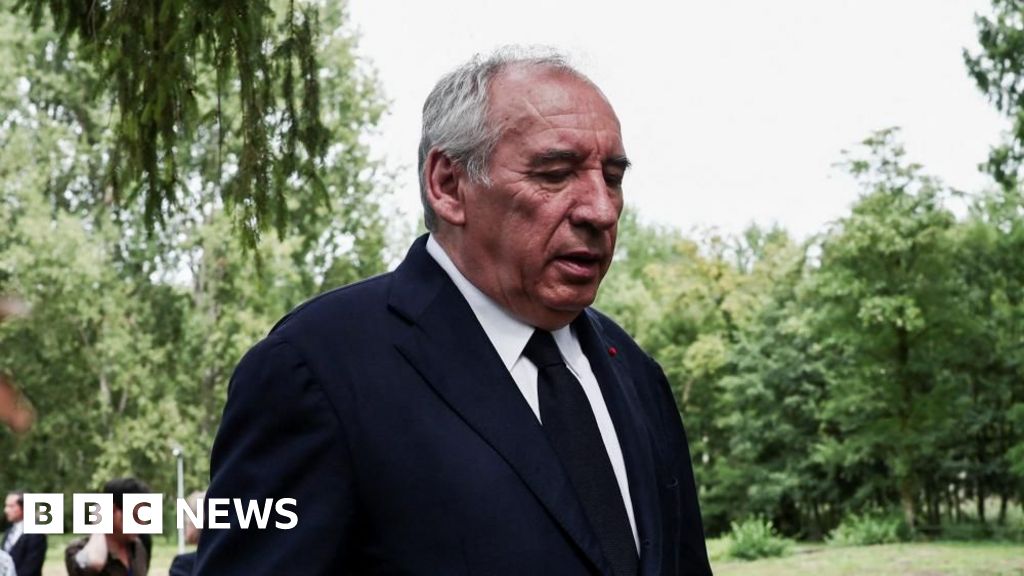France heads for political crisis as PM Bayrou risks all on confidence vote

France is on the brink of another political crisis, after Prime Minister François Bayrou’s shock decision to submit his government to a vote of confidence in parliament.
The chances of his winning the vote in a special session of the National Assembly on September 8 being extremely slim, the prime minister’s days in office look numbered.
If the vote is lost, Bayrou will be expected to resign, leaving France once again rudderless at a time of immense economic, social and geopolitical uncertainty.
For the second time inside a year, the disastrous effects of President Emmanuel Macron’s hasty parliamentary dissolution of July 2024 threaten institutional chaos and even civil unrest.
Far from offering the “clarity” that Macron wanted after his defeat in European polls in June 2024, the newly elected National Assembly was split three ways between centrists, the populist right, and the left – meaning that no government of any stripe could hope for a majority.
Macron himself was cut out of domestic politics and forced to focus on international affairs.
The first post-dissolution prime minister, Michel Barnier, struggled on until December, but then was brought down when the opposition parties combined against his budget.
And now exactly the same thing seems about to happen to his replacement.
The only difference is that Bayrou is refusing to go through the same agony of three months of ultimately fruitless debate in parliament. Like a desperate gambler, he is staking the house on an initial vote of confidence.
If he wins, it will be a spectacular vindication of his apocalyptic strategy, warning – like a lone prophetic voice – of the existential threat to France if it fails to take back control of its debt.
The trouble is no-one expects him to win the vote. Least of all, probably, he himself.
The numbers are easy to count.
The four pro-government groups in the Assembly have 210 deputies between them. The oppositions – of left and right – have between them 353.
For Bayrou to have any chance, he would need either the Socialist bloc (66 seats) or Marine Le Pen’s National Rally (123) to make a move. If National Rally abstained, it would make for a tight vote that might just be winnable if a few smaller groups did the same.
But if Bayrou is looking to the Socialists, they would have to vote for the government to make any difference. And that is not going to happen.
Indeed the whole question is looking increasingly academic as opposition leader after opposition leader has made it clear in the last 24 hours that they are not in any way minded to rescue the beleaguered PM.
Perhaps Bayrou has his eye rather on the country as a whole.
Maybe he wants to go down in history as the man who, Cassandra-like, foretold France’s death-by-debt but was never believed. Or perhaps he is pondering the 2027 presidential election, and hopes that by then voters will realise he was right all along.
Sadly for him, though, there is no sign of the French changing their mind on debt. In their vast majority, they simply do not think the issue is as urgent as Bayrou says it is. Or if they do, they can’t see why ordinary folks like them should suffer for it.
Even before this latest twist, the country was shaping up for a dramatic autumn – with a grassroots protest movement called Bloquons Tout (Let’s Block Everything) earning comparisons with the Gilets Jaunes (Yellow Vests) who so disrupted Macron’s first mandate as president.
Fired up by Bayrou’s plans to axe two public holidays and freeze public spending, the movement announced a day of action on 10 September, for which it now has the support of far-left leader Jean-Luc Melenchon. Unions are planning separate actions against government “austerity”.
Of course if the government has fallen on 8 September, then the need for such protest may have evaporated. And the country will have other, more pressing, problems on its mind.
What happens if the government does fall is hard to predict.
There will certainly be more calls for Macron to resign, which he will almost certainly resist. Presumably he will start by trying to find another prime minister, but after the loss of both Barnier and Bayrou who would take the plunge?
Marine Le Pen is leading calls for a new dissolution of the National Assembly, which under the constitution is now possible. No second dissolution was allowed within a year of the first which meant that until July there was no way out of the parliamentary impasse.
But it is highly unlikely new elections would improve the position of the centrist bloc which is loyal(-ish) to Macron. More probably it would reinforce the populist right, though the most likely scenario of all is yet another three-way blockage.
In such circumstances the country appears condemned to more domestic drift and deferred decisions.
It could hardly come at a worse time, as Europe and the West face big questions over security, immigration, debt and the rising costs of their post-World War Two welfare states.
President Macron’s final 18 months in office look like being a sad parody of the hopeful era he so proudly announced back in 2017.
Source link

